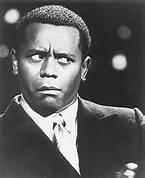
07 Mar Here Comes the Judge!
In the 1970’s comedian Flip Wilson created a ridiculous character whose signature line was, “Here comes the judge! Here comes the judge!”
That phrase has often passed through my mind as I work to help people recognize the problems with judgment—even those small, seemingly-harmless thoughts that we keep to ourselves. As pointed out last week when those judgments pass through our minds they color and distort whatever situation we are in. These thoughts are anything but harmless; they create unnecessary tension, depression and relationship problems.
Our brains are remarkably fast and responsive—must quicker than the most powerful computers and just as quick to respond to whatever information is provided. Unfortunately much of the information floating through our minds is less than entirely factual. But our brains believe everything we think and as soon as we have a judgmental thought—labeling something as good or bad, right or wrong, valuable or worthless—our brains stop responding to whatever we were considering and begin responding to the label we placed on that object, situation or person.
Our brains are beautifully designed to protect us from things that are harmful or somehow dangerous. But our brains rely upon us to feed them correct information, responding to what we think rather than “just the facts”. Once we have decided something is bad or wrong the brain suggests that it has to go, or simply cannot be allowed to exist.
I recall a classroom experience in which students were asked to mindfully eat a dark chocolate M&M. Most reported they had never enjoyed a small piece of candy in that way and looked forward to engaging with their food more thoughtfully in the future. One student pinched up her face and admitted she could not bring herself to put the M&M in her mouth once she learned it was dark chocolate. Once she told herself it was “nasty and gross” she was physically incapable of putting in her mouth.
Few have been seriously scarred by encounters with small pieces of chocolate, even dark chocolate. Yet her judgments ruined her entire class period, robbing her of the pleasure others enjoyed. But can you imagine what happens between people who entertain judgments about one another?
A wife lovingly asks her husband to join her for her favorite movie and he responds by saying—only in his mind—“You’ve got to be kidding. I hate chick flicks!” Any wife will tell you that she will pick up some hint of how he feels about watching the movie with her. She may see the slight eye roll and respond internally: “He is so selfish! He doesn’t care about doing things with me.” Try as they might, each will be influenced at least minutely by those judgment thoughts. If they are lucky they will try to push the thoughts away, reminding themselves of their love for the other. If they are “normal” they will pull away from each other and not enjoy the evening together as they had hoped.
You might argue, “But chick flicks ARE stupid”, and your friends might agree. That doesn’t stop the judgment from interfering with your experience. The very term “chick flick” creates a negative emotional response. At that moment your brain forgets you a being invited to share a pleasant night with your honey, and focuses on the perceived danger or “wrongness” of that movie. Even if you do give in and watch the movie you cannot see the movie or the evening for what they are; your brain has been hijacked by judgment.
I know of whence I speak; I suffered mightily through Mama Mia and utterly refused to see any of the Twilight films.
“Mindfulness is the awareness that emerges through paying attention on purpose, in the present moment, and nonjudgmentally, to things as they are.” Practicing mindful responses to the world around you and to your internal experiences reduces suffering and increases opportunities to connect. The trick for one seeking to live mindfully is to recognize and accept judgment without responding in kind.
So next time you recognize a judgmental response from you or from someone else just smile, breathe deeply and remember Flip Wilson.
Michael D. Williams is a licensed psychotherapist, a Marriage & Family Therapist with over 25 years’ experience. You can comment, ask questions or offer suggestions at MichaelWilliamsCounseling.com or 208.360.2365.
